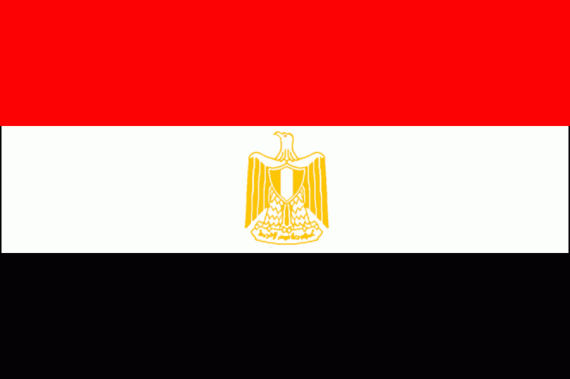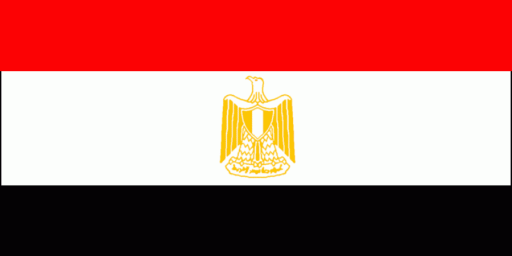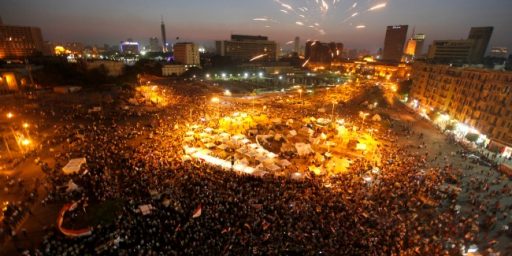Clashes In Egypt Leave Dozens of Morsi Supporters Dead
Post coup protests in Egypt seem to be getting more deadly:
CAIRO — Egyptian security officials and members of the Muslim Brotherhood said that more than 40 supporters of deposed President Mohamed Morsi were killed as violence erupted outside a military officers’ club early Monday where the supporters had been holding a sit-in for days demanding his release from detention.
A spokesman for the Muslim Brotherhood said the supporters were killed by soldiers and police officers during an “unprovoked” attack during dawn prayers using tear gas and live ammunition.
Security officials said the death toll stood at 43 civilians and one security officer. They added that more than 300 people had been wounded.
Al Jazeera broadcast footage of a field hospital run by Mr. Morsi’s supporters, showing what appeared to be several bodies lying on the ground and doctors treating bloodied patients. Army tanks blocked approaches to the officers’ club, as well as another square nearby where the field hospital was located.
Witnesses in the area where the shooting took place said they saw Mr. Morsi’s supporters performing the dawn prayers. Shortly afterward, the witnesses said, they heard the sound of heavy automatic weapons and pro-Morsi supporters were seen fleeing frantically, seeking to take cover behind debris on the streets and billboards.
It was the second explosion of deadly violence outside the Republican Guard officers’ club since the military intervened on Wednesday to depose Mr. Morsi, following mass protests against his rule. Mr. Morsi’s supporters believe the former president is being held inside the club, and have held rallies at its gates, demanding his release.
The killings came a day after the Muslim Brotherhood and its allies vowed to broaden their protests against the president’s ouster and American diplomats sought to persuade the Islamist group to accept his overthrow, its officials said. But the killings on Monday seemed certain to inject perilous new factors into the country’s fragile political calculus.
Continuing a push for accommodation that began before the removal of Mr. Morsi last week, the American diplomats contacted Brotherhood leaders to try to persuade them to re-enter the political process, an Islamist briefed on one of the conversations said on Sunday, speaking on the condition of anonymity to discuss private conversations.
“They are asking us to legitimize the coup,” the Islamist said, arguing that accepting the removal of an elected president would be the death of Egyptian democracy. The United States Embassy in Cairo declined to comment.
Meanwhile, one of the Islamist Party’s that had been part of the civilian coalition put forward by the military in the wake of the removal of former President Morsi has withdrawn from the coalition:
CAIRO — A party of ultraconservative Islamists that emerged as an unexpected political kingmaker in Egypt after the military’s ouster of President Mohamed Morsi said on Monday that it was suspending its participation in efforts to form an interim government.
A spokesman for the Al Nour party said its decision was a reaction to a “massacre” hours earlier at an officers’ club here in which security officials said more than 30 people had been killed. The decision brought new complexities and unanswered questions to the effort to create a transitional political order.
The Al Nour party was the only Islamist party to support removing Mr. Morsi, despite his ties to the more moderate Islamists of the Muslim Brotherhood. And the sight of Al Nour’s bearded sheik, standing behind the general who announced the takeover on television, was the only signal to Egyptian voters that the move had not been an attack on Islam, as some of the ousted president’s supporters are saying.
The party played a starring role in the military’s choreographed presentation of its takeover as the chance to reunify a country on the brink of civil war between opponents and supporters of Mr. Morsi’s Muslim Brotherhood. But while Al Nour’s leaders say they intend to build bridges, some liberals say the party is pushing potentially divisive demands, from picking a new prime minister to keeping Islam prominent in any new constitution.
Over the weekend, Al Nour tested its leverage for the first time to force the retraction of an announced plan to name a liberal icon, the Nobel Prize-winning diplomat Mohamed ElBaradei, as interim prime minister.
“You just can’t do something like that, after we had appeared right next to you on the scene” at the televised announcement, Younis Makhyoun, a Nour party leader, said on Sunday. “We have grass roots,” Mr. Makhyoun added, “and they don’t agree on the choice of ElBaradei.”
Instead, state news media outlets reported on Sunday that the interim government was close to naming as acting prime minister Ziad Bahaa el-Din, a former head of Egypt’s investment authority. A Nour leader blessed him in a radio interview as “one of the liberal figures that we greatly respect.”
The party’s ability to block Mr. ElBaradei from the premiership raised new alarms from liberals about what the ultraconservatives, known as Salafis, might demand next, even after the expulsion of the more moderate Brotherhood.
“This stage of the revolution was against this type of Islamist party,” said Shady el-Ghazaly Harb, one of the organizers of the anti-Morsi protests. “We will not have any concessions when it comes to writing the constitution, and we will die for that,” he added, vowing that the charter should include “a separation of religion and politics, because parties should not be built on religion.”
Other organizers of the protests that helped force Mr. Morsi from office said they would stage new demonstrations in part against Al Nour.
Things are obviously still pretty murky, but the immediate reaction to the coup seems to be one in which the Muslim Brotherhood isn’t simply going to go back home and accept the fact that they’ve had power taken out of their hands, especially when the’ve got and arguably strong case that their candidate had at least some legitimacy given the fact that he was democratically elected. The fact things have turned so violent so quickly isn’t a good sign at all.
On the other hand, the shakeup in the military’s civilian front suggests the possibility of future conflict between secular and religious forces in Egypt. Hopefully, that conflict will confine itself to the political realm, because otherwise things could get quite dangerous in the Arab world’s most populous nation.


![Military Coup Underway In Egypt [Update: Morsi Deposed]](https://otb.cachefly.net/wp-content/uploads/2011/02/egypt-flag3-512x256.gif)



The Morsi supporters have apparently been sending rape gangs to go after female protesters, and are on video throwing people off buildings.
Dozens of them dead? I’d call that “a good start.”